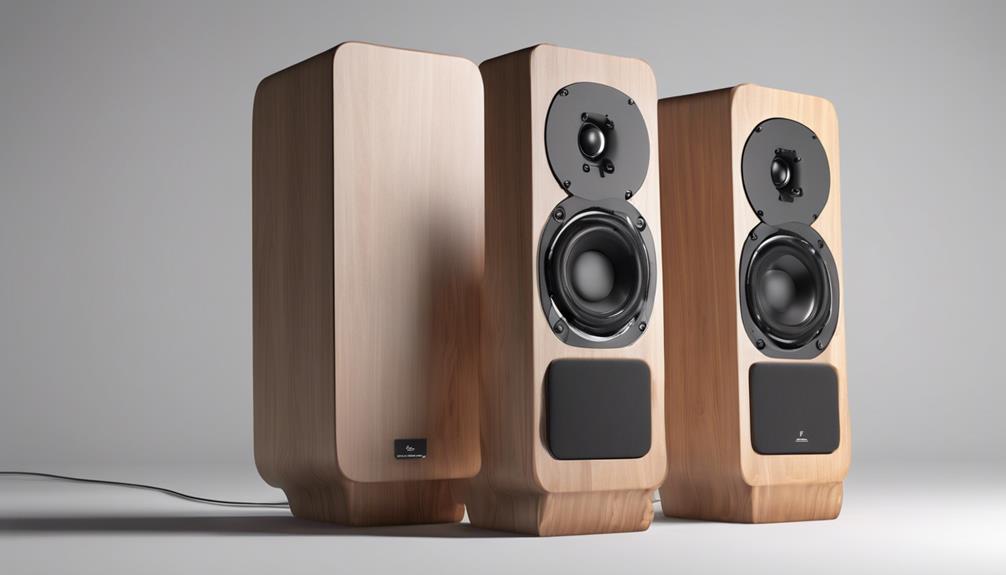Did you know that nearly 60% of audiophiles prefer three-way speakers for their superior sound quality? While that might suggest a clear winner, the choice between three-way and two-way speakers isn’t as straightforward as it seems. Each type offers distinct advantages and potential drawbacks that cater to different listening environments and preferences. Understanding these nuances can greatly impact your audio experience, so let’s explore what sets them apart and how you can determine which option best suits your needs.
Overview of Speaker Types
When choosing speakers, it’s essential to understand the differences between two-way and three-way designs. Two-way speakers consist of two drivers: a woofer for low frequencies and a tweeter for high frequencies. This design’s simplicity can be appealing, especially if you’re looking for a compact solution that doesn’t compromise too much on sound quality. They’re often easier to set up, making them a safe choice for those who may not be as tech-savvy.
On the other hand, three-way speakers include an additional mid-range driver, which allows for more accurate sound reproduction across a broader frequency range. This added driver can enhance clarity, especially in vocal performances and complex musical arrangements. However, the complexity of three-way designs might require more careful placement and setup, which could pose challenges for some users.
Both types have their pros and cons, and your choice should depend on your specific needs and environment. If you prioritize ease of use and space-saving designs, two-way speakers could be the way to go. If you’re aiming for richer sound and can manage the installation, three-way speakers might be worth considering. Always prioritize what feels safest and most comfortable for you.
Sound Quality Comparison
Sound quality can markedly differ between two-way and three-way speakers, impacting your listening experience. When you’re considering which type to choose, it’s crucial to understand how each speaker handles sound. Here’s a quick comparison to help you out:
- Frequency Range: Three-way speakers typically cover a broader range of frequencies, providing clear highs, mids, and lows. You’ll notice that these speakers can reproduce complex audio tracks more effectively.
- Sound Clarity: With dedicated drivers for each frequency range, three-way speakers often deliver clearer sound, reducing distortion at higher volumes. This means you’ll enjoy a more detailed listening experience.
- Dynamic Range: Three-way speakers usually excel in dynamic range, allowing for better sound detail during quiet and loud passages. This can enhance your overall enjoyment of music and movies.
- Bass Response: If you’re after deeper bass, three-way speakers might be the way to go. They can handle low frequencies better than most two-way models, making your listening experience more immersive.
Choosing the Right Option
Deciding between two-way and three-way speakers can greatly affect your audio experience, so it’s essential to evaluate your specific needs and preferences. If you’re looking for a more straightforward setup, two-way speakers might be your best bet. They usually consist of a woofer and a tweeter, providing a balanced sound for casual listening. If you enjoy a more dynamic audio experience, three-way speakers might be the way to go, as they feature an additional mid-range driver, enhancing clarity and detail.
Consider where you’ll use the speakers. For a home theater system, three-way speakers can deliver immersive sound, making movie nights more enjoyable. However, if you’re setting up a compact audio system, two-way speakers are often more space-efficient and easier to integrate.
Don’t forget about your budget. While three-way speakers can offer superior sound quality, they often come at a higher price point. Make sure you’re comfortable with your investment. Ultimately, it’s about finding the right balance between sound quality, cost, and space to guarantee a safe and satisfying listening environment.

